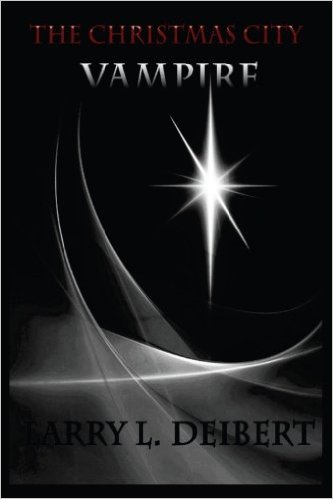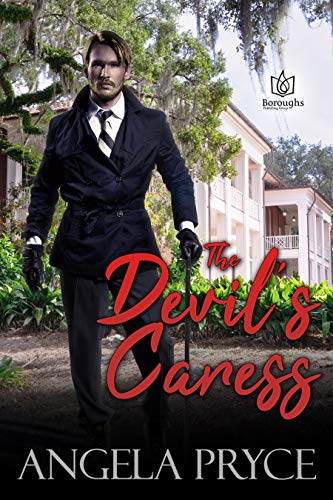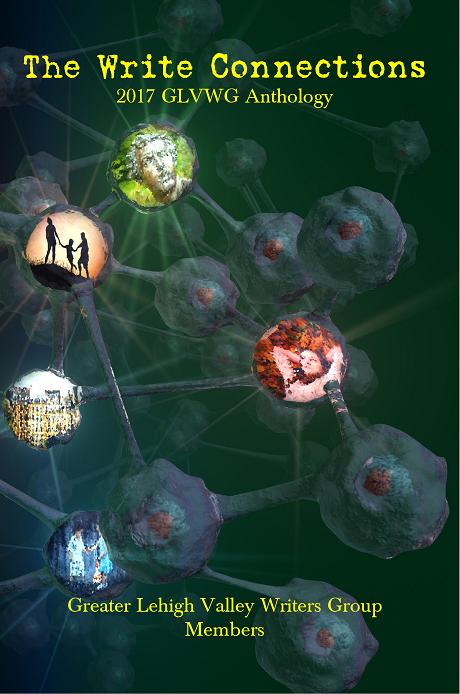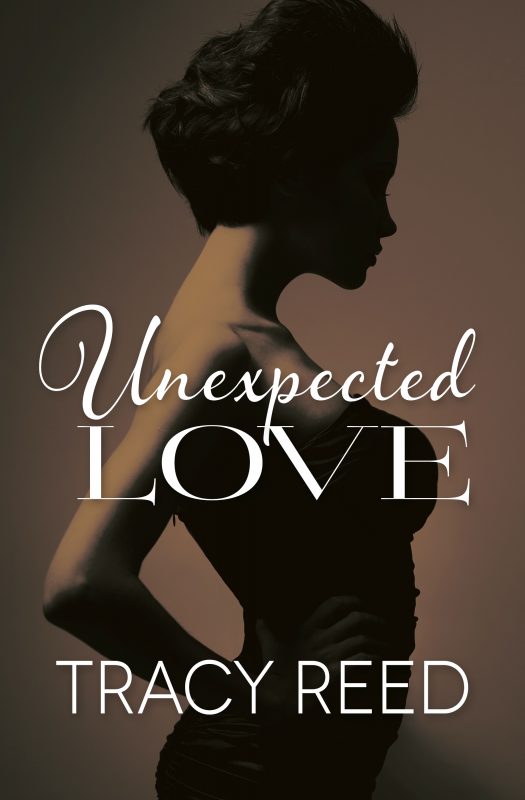Night Shift
September 30, 2025 by Dianna Sinovic in category Quill and Moss by Dianna Sinovic, Writing tagged as Dianna Sinovic, flash Fiction, short story, transformation
A crab shell on the riverbank marked the end of day. No crab inside, just the empty carapace and claws, bright objects against the darker sandy grit along the water. Jyr laid thin branches of hemlock around the shell, then watched the river current flickering where the setting sun touched the ripples.

She had gathered bare sticks and limbs to make a fire, but that was for after night dropped its curtain over the landscape. For now, she sat cross-legged on the bank, next to the shell, and waited.
Soon, the heron had told her. The change was approaching. Was she ready?
She’d asked, “Will I like it?” The heron had preened, offering nothing else.
With a weathered branch, Jyr drew shape after shape in the damp sand. Maybe the runic symbols Belna had taught her as a child would help hurry along whatever lay ahead.
Six mallards swam past, their soft quacks of conversation weaving with the low rush of water over stones. A breeze from the northeast ruffled Jyr’s hair and brought the sharp scent of pine sap. Small rocks mixed with the finer sand pressed into Jyr’s bottom, forcing her to shift.
As the sun sank below the horizon, the river darkened. Instead of a fiery glint, the running water now reflected the spangle of stars emerging overhead.
And still Jyr waited, her stomach rumbling in a low growl. When?
As hard as she stared, nothing and no one appeared out of the night. Finally, a crab moved at the edge of the water, and with a quick stab she had it in her beak. Beak? Now standing, she lifted one leg and then the other, her knees bending backward, then she shook, feeling her feathers move and rearrange themselves.
Another crab, another swallow. Jyr resumed her slow stalk along the bank, the memory of what she had been already fading, like the shapes and symbols drawn in the wet sand.
Read More of Dianna’s Stories
Financial Fore-cast
April 30, 2025 by Dianna Sinovic in category Quill and Moss by Dianna Sinovic tagged as Dianna Sinovic, flash Fiction, magic, Spells
The accountant opened the folder and skimmed the stack of documents it contained. A W-2, 1099s, receipts, investment summaries, it was all there, Annie hoped. Matt always left it up to her to compile the papers needed before they sat down with Tom, their CPA. Her business was laden with supply orders, customer invoices, and back-end pay-outs. Matt worked in analytical statistics for a pharma company: salary, health insurance, 401(K), easy-peasy.

“This expense here.” Tom tapped his finger on a receipt. “Shadow essence. For your shop?”
“Yes. I go through three boxes a week, minimum.” Annie had opened her store, A Spell on You, three years ago and had yet to turn a profit—a sore point with Matt, who was used to assessing revenues in the hundreds of thousands.
“How much longer are you going to play at this?” he’d groused several days ago as she was assembling the folder for Tom. “Give it up. Get a real job.”
“I’m not playing. This is my dream and I’ll make it work.”
“Yeah. Conning people into thinking you can ‘cast spells.’” Matt didn’t believe in magic; he believed in numbers. “Numbers don’t lie.” His favorite three words to live by.
Annie knew in her bones she was the real thing. Her testimonials were glowing. Her repeat customers came with a list for her to work through. If only there were a few more customers. Still, imposter syndrome ate at her, and Matt’s griping made it worse. She didn’t want anyone to know she was uncredentialed, a seat-of-the-skirt kind of gal, when it came to spelling. But books on spell craft filled three full shelves in her shop’s back room, and she’d memorized most of them.
Tom coughed politely, and Annie pulled herself back to the present.
“Sorry,” she said, her face hot. “Did you have a question?”
Matt sighed in annoyance. “Come back from la-la land, bae. Tom doesn’t have all day for you to daydream your way to financial success.”
Putting his readers on, Tom smiled kindly at her. “I’m in no hurry.” He turned back to the folder and held up another sheet. “Now this one for spider milk.”
And on they went, with Tom asking questions, to which she supplied explanations, while Matt rolled his eyes.
At the session’s end, after shaking hands with Tom, they stood at the elevator. The doors swished open, and Matt strode into the empty car, his anger obvious in the set of his jaw.
“Next year, we file separately,” he said. “I’m tired of this hocus pocus shit.”
“Let’s try something,” Annie said, as the car descended, with a clunk, from eighth to the lobby. “You don’t believe in magic, so we’ll put it to a test. See who’s right.”
Chuckling, Matt shook his head. “Can’t you see how ridiculous you are?”
She cocked her head, moved her feet in a patterned sequence, and spoke in a monotone. “Five, twenty-three, fourteen, thirty-nine …” She continued on with a handful of additional digits. It was a spell she’d been waiting to use, patiently watching for the perfect moment.
A low groan filled the elevator, and Matt sagged against the rear wall. His eyes held panic—understandably, since he could no longer move or speak.
The car settled on the ground floor, and the doors swished open.
Annie smiled sweetly at her husband. “Matt, dear, I agree with you. Numbers don’t lie.” She walked out of the elevator, leaving him where he was.
More of Dianna’s Stories
On the Wing
October 30, 2024 by Dianna Sinovic in category Columns, Quill and Moss by Dianna Sinovic, Writing tagged as birding, flash Fiction, short fiction, writing
The post promised an autumnal birding phenomenon not to be missed. Steph wasn’t really a birder—she could never tell one sparrow from another—but she did like birds. The local nature site urged anyone interested to show up just before dusk at a reservoir in the hills of Bucks County. There they would watch as a large flock of starlings swooped and tumbled in a remarkable, unified movement called a murmuration.

She reached out to several friends, but no one could make it. And Claire was gone; Claire, who had given Steph a rudimentary lesson on birds several years before. Steph didn’t know if Claire had ever seen the starling flock. She would go, alone, in memory of her friend.
When she arrived at the nature center, a tangerine sun sat on the horizon. A handful of cars filled the lot, and a knot of people stood outside the building entrance, which was flanked by several large pumpkins and a scarecrow. Steph made her way to the group, adjusting her binoculars around her neck. The center director, a woman in a blue down vest and a wool watch cap, was already talking.
“We’ll take the boardwalk to the lake shore,” the director said. “That’s the best place to see the birds. They’ll start arriving within the next fifteen to twenty minutes.”
Intimidated by what she thought of as “true” birders, Steph hung at the back of the group as they set off toward the lake. The slight October breeze made her zip her fleece jacket and pull out her mittens. It carried a faint whiff of fireplace smoke and moldering vegetation. Dried leaves scuttled along the wooden planks and crunched under hiking boots, and a handful of crows cawed overhead. Claire would have been at the front of the line, pulling Steph along, making her feel at home and welcome despite her limited knowledge of avian life.
Many birds are like people. They prefer to hang out in groups. That was a bit of Claire wisdom Steph dredged up as she walked. But Steph was more of a loner. More like a heron, she decided, preferring to watch the world by herself. Except. She missed Claire.
“Everyone!” the center director shouted. “The starlings are starting to gather across the lake. Keep an eye on the small flocks. They’ll merge into bigger and bigger groups.”
Focusing the binoculars at the far shore, Steph swept them up and around, listening as others in the group called out. Sure enough a small flock dipped and turned in the distance. Another flock appeared to the left. Yet another materialized. Soon the flocks became one—a large swirling mass of dark birds dancing to their own feathered rhythm.
“Oh, Claire,” Steph breathed. If only she could have seen this magical phenomenon.
As if in answer, the now-large flock swooped upward as one entity and curved to the right. The trailing birds formed a line, and the complete symbol became the letter C.
In a whisper on the wind, Steph could have sworn she heard Claire’s voice: Even herons need companionship. Don’t be afraid to reach out.
More of Dianna’s Stories
Door Knocker
September 30, 2024 by Dianna Sinovic in category Quill and Moss by Dianna Sinovic, Writing tagged as flash Fiction, short fiction, writing
The staircase is steep, a small hill of thirty-five steps to ascend to reach your room. This was not in the description you read of the quaint New England hotel when you did your research. You realize quaint has more than one definition. The stairs are only the first of several aspects of this lodging that were omitted in the details provided. The second is that there are only three rooms in the hotel, because the first floor houses not only a podiatrist’s office but also a small gift shop (with only intermittent hours). The third omission is one you will come to realize as the day slips into night.

Room One overlooks a winding creek and a stand of white pine. You are glad for the quiet until the innkeeper informs you that you are currently the sole guest. When you push for a reason, she explains with a shrug that it’s the off-season in this tourist town. She also informs you that she leaves at five o’clock and then entrusts you with the security code for the hotel’s entrance.
The room has a coffeemaker, so you brew a cup and unpack your suitcase—only half full because you are only there for two days, the more important day being tomorrow, when you will give a presentation to a potential client.
At a table big enough for only your laptop and the cup of coffee, but with a serene view of the creek, you review your slides—which ones to edit and which to scrap. Tomorrow’s pitch holds the key to your future and that makes your hand shake as you raise the cup to your lips.
After a dinner down the block of grilled chicken and a side salad—you are trying to lose ten pounds!—you read in your room until nearly midnight. It’s after you turn out the bedside lamp that the noises begin.
First, a bump against the far wall of your room. Then a crackle. More bumps. Muffled voices arguing. This is the off-season; you’re the only one here this week. The innkeeper had told you this conspiratorially. Now you wonder if she somehow forgot about the guest next door.
You put a pillow over your head to block the noise, but the commotion seeps into your subconscious, putting you into an uneasy sleep with dreams of your PowerPoint slides disappearing as you click on them before a room full of people who frown.
Finally, at two-thirty, with the noise unabated, you pull on clothes and march to Room Two. The hallway lights flash on with your movement.
Taking a deep breath to steel yourself, you give a polite knock. No response, but you can hear sounds of laughter, clinking glasses, the thrum of a bass beat. A stronger knock. You consider how tired you will be by morning.
You raise your fist to pound on the door, and the noise ceases. The only sound now: a lone cricket chirping in the hallway behind you. The latch clicks and the door slowly swings open. The dim interior is illuminated only by a nightlight on the opposite wall. Beyond the doorway is silence—no movement, no whispers, nothing. And you remember that you are alone in this building.
The next morning, all is quiet next door, and as you splash water on your face, you wonder if what you remember was just a bad dream. After all, you are stressed: The success of your business hinges on how well you do today.
The crisp black slacks and stylish silk shirt hide those extra pounds, and you approve of the young woman looking back at you from the full-length mirror. Sipping coffee, you check your bag for the files you’ll need, then touch up your lip gloss. You’ve masked the circles under your eyes as best you can; you are not a night person, as much as your friends want you to be.
Checking your watch, you slip your laptop bag over your shoulder and open the door to leave. You have enough time to drive to the interview, stopping at Starbucks on the way. More coffee will either energize or frazzle you. So much for a good night’s sleep.
In the hallway, precisely centered before you, sits a white bakery bag, the top folded closed. You look left and right, but the hallway stands empty. Cautiously, you pick up the bag, noting that someone has written your name in neat script. A perk from the hotel?
The bag opens easily, and nestled inside is a frosted muffin: scents of butter, cream, and brown sugar waft up, and you dig out the treat. Along with the muffin, your hand catches on a slip of paper, which flutters to the floor.
Now ravenous, you bite into the muffin, then pick up the paper. Another bite finishes the muffin. Delicious, maybe the best muffin you’ve ever had.
You unfold the paper and read the words written in the same neat script:
Our apologies if our party disturbed your sleep. Please accept this peacekeeping gesture. You will get the job.
No signature, but you assume it’s from the innkeeper.
Oh, well. You crumple the bag, hoping at the truth of her positive message.
When you arrive at the appointment, the client job offer is waiting for you; no presentation needed.
Back at the hotel, you thank the innkeeper for the morning muffin and share your good news.
“Muffin?” she says, her eyebrows raised.
Some of Dianna’s stories are in the following anthologies.
Detachment
November 30, 2023 by Dianna Sinovic in category Quill and Moss by Dianna Sinovic, Writing tagged as flash Fiction, grief, loss, recovery
Leaves, leaves, and more leaves—the fall chore overwhelmed Kelsie each year, ever since she’d lost Tanner. It wasn’t the yardwork that ate at her, but more the season, the slide from a glorious summer into an end-of-growing-things autumn, followed closely by the chill of winter, when everything was either dead or in a deep sleep. That inevitability reminded her she’d been powerless to stop Tanner’s death—once the cancer was diagnosed, he’d had exactly three months left, those three months falling during a turbulent autumn.

Her friends worried for her. “Five years out, you should be bouncing back,” they said. “He would want you to live your life, not stay buried in grief.”
But they didn’t know—hadn’t known—her brother. After their father, and then their mother had died, Tanner had been her lifeline. For that bittersweet decade after their deaths, he had served as her confidant when her personal relationships soured. He’d always, always led her toward the positive, even after he got sick.
“You’re a tough woman,” he’d said when she expressed doubt that she could carry on without him. “You’ll survive. That’s what we do. All of this loss makes you strong.”
But she knew different. Loss left holes. Large ones that couldn’t be filled, no matter how many days, weeks, or years passed. Couldn’t be filled, no matter how many dead leaves you stuffed into them.
And so Kelsie raked. The piles grew, and she allowed the ache in her arms and shoulders and back to counter the pain in her soul. Her thoughts butted up against the endless question: Why had she been spared? Tanner should have lived, not her; even after all this time, she was still not up to the task of facing her life alone.
When the sun sank below the trees, she put up the rake and went indoors for a hot mug of hard cider and a hearth fire. She dozed in her chair, hearing over the crackle of the flames the wind gusting. I should have moved the leaf piles into the woods. Now they’ll be scattered.
The following morning, Kelsie pulled on her jeans, boots, and sweater to tackle another round of yard work. Glancing out the bedroom window, she stepped closer to the glass, to better see.
The wind—or something—had indeed moved the leaves, but instead of scattering them, they were arranged on the grass in a pattern, one that spelled a name: hers.
“Tanner,” she whispered, feeling suddenly lighter. The darkness within her retreated with the day’s full sunlight. “Thank you.”
Books with more of Dianna’s stories
Affiliate Links
A Slice of Orange is an affiliate with some of the booksellers listed on this website, including Barnes & Nobel, Books A Million, iBooks, Kobo, and Smashwords. This means A Slice of Orange may earn a small advertising fee from sales made through the links used on this website. There are reminders of these affiliate links on the pages for individual books.
Search A Slice of Orange
Find a Column
Archives
Featured Books
UNEXPECTED LOVE
I can't believe I fell in love with my husband's best friend.
More info →Newsletter
Contributing Authors
Search A Slice of Orange
Find a Column
Archives
Authors in the Bookstore
- A. E. Decker
- A. J. Scudiere
- A.J. Sidransky
- A.M. Roark
- Abby Collette
- Alanna Lucus
- Albert Marrin
- Alice Duncan
- Alina K. Field
- Alison Green Myers
- Andi Lawrencovna
- Andrew C Raiford
- Angela Pryce
- Aviva Vaughn
- Barbara Ankrum
- Bethlehem Writers Group, LLC
- Carol L. Wright
- Celeste Barclay
- Christina Alexandra
- Christopher D. Ochs
- Claire Davon
- Claire Naden
- Courtnee Turner Hoyle
- Courtney Annicchiarico
- D. Lieber
- Daniel V. Meier Jr.
- Debra Dixon
- Debra H. Goldstein
- Debra Holland
- Dee Ann Palmer
- Denise M. Colby
- Diane Benefiel
- Diane Sismour
- Dianna Sinovic
- DT Krippene
- E.B. Dawson
- Emilie Dallaire
- Emily Brightwell
- Emily PW Murphy
- Fae Rowen
- Faith L. Justice
- Frances Amati
- Geralyn Corcillo
- Glynnis Campbell
- Greg Jolley
- H. O. Charles
- Jaclyn Roché
- Jacqueline Diamond
- Janet Lynn and Will Zeilinger
- Jaya Mehta
- Jeannine Atkins
- Jeff Baird
- Jenna Barwin
- Jenne Kern
- Jennifer D. Bokal
- Jennifer Lyon
- Jerome W. McFadden
- Jill Piscitello
- Jina Bacarr
- Jo A. Hiestand
- Jodi Bogert
- Jolina Petersheim
- Jonathan Maberry
- Joy Allyson
- Judy Duarte
- Justin Murphy
- Justine Davis
- Kat Martin
- Kidd Wadsworth
- Kitty Bucholtz
- Kristy Tate
- Larry Deibert
- Larry Hamilton
- Laura Drake
- Laurie Stevens
- Leslie Knowles
- Li-Ying Lundquist
- Linda Carroll-Bradd
- Linda Lappin
- Linda McLaughlin
- Linda O. Johnston
- Lisa Preston
- Lolo Paige
- Loran Holt
- Lynette M. Burrows
- Lyssa Kay Adams
- Madeline Ash
- Margarita Engle
- Marguerite Quantaine
- Marianne H. Donley
- Mary Castillo
- Maureen Klovers
- Megan Haskell
- Melanie Waterbury
- Melisa Rivero
- Melissa Chambers
- Melodie Winawer
- Meriam Wilhelm
- Mikel J. Wilson
- Mindy Neff
- Monica McCabe
- Nancy Brashear
- Neetu Malik
- Nikki Prince
- Once Upon Anthologies
- Paula Gail Benson
- Penny Reid
- Peter J Barbour
- Priscilla Oliveras
- R. H. Kohno
- Rachel Hailey
- Ralph Hieb
- Ramcy Diek
- Ransom Stephens
- Rebecca Forster
- Renae Wrich
- Roxy Matthews
- Ryder Hunte Clancy
- Sally Paradysz
- Sheila Colón-Bagley
- Simone de Muñoz
- Sophie Barnes
- Susan Kaye Quinn
- Susan Lynn Meyer
- Susan Squires
- T. D. Fox
- Tara C. Allred
- Tara Lain
- Tari Lynn Jewett
- Terri Osburn
- Tracy Reed
- Vera Jane Cook
- Vicki Crum
- Writing Something Romantic
Affiliate Links
A Slice of Orange is an affiliate with some of the booksellers listed on this website, including Barnes & Nobel, Books A Million, iBooks, Kobo, and Smashwords. This means A Slice of Orange may earn a small advertising fee from sales made through the links used on this website. There are reminders of these affiliate links on the pages for individual books.





















































